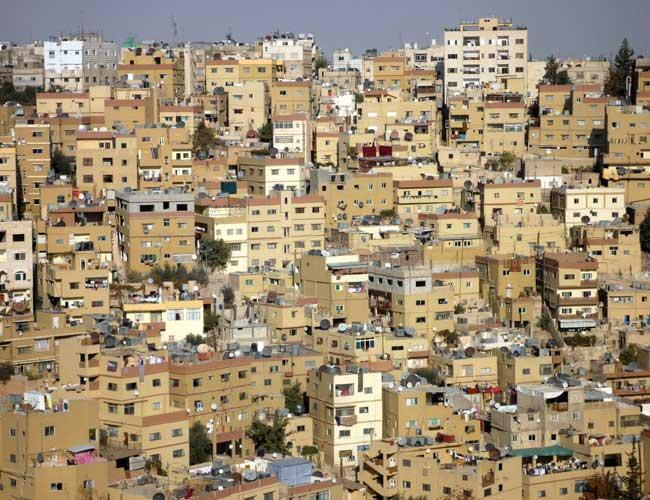
‘Heaven on Earth’ by Fadi Zaghmout, translated by Sawad Hussain (Signal 8 Press, 213 pages, $19)
By the end of the 21st century, scientific advances have it possible to reverse the aging process. A small golden pill has been developed, containing state-of-the-art nanobots that reinforce the human immune system while revitalizing the productive capacity of the body’s cells. The elixir of eternal youth is within everyone’s reach, making death itself a taboo subject akin to suicide.

The moral and social implications of such a world are at the center of “Heaven on Earth” by Jordanian author Fadi Zaghmout. Set in Amman in the 2090s, the novel is an original and creative work of imagination, juxtaposing dizzying technological advances with stubbornly persistent social mores. The Arab-Israeli conflict continues to rage. “Honor killings” remain an open wound. Extended Arab families are still riven by bitter feuds. The strictures of religion remain oppressive.
The narrative centers on Janna Abdallah, who faces a series of dilemmas. Her brother Jamal has taken the unusual and controversial step of opting to die of natural causes rather than taking a golden pill. In this future world of gradually dwindling deaths, the right to give birth is closely regulated by the authorities to maintain stable population levels. Upon Jamal’s death his family will inherit the right to one new birth, and Janna takes the remarkable decision to give birth to her own mother. She can do this because she owns the exclusive rights to her mother’s genetic map and science has advanced enough to incubate the egg necessary to resurrect her mother, who died of natural causes decades ago. Meanwhile, Janna’s husband has himself taken the golden pill and has started to regress, Benjamin Button-like, to the age of a child.
The premise is indeed bonkers. And inevitably things are not as straightforward as advanced science might suggest. Rivalry, jealousy and inter-family feuding all complicate the situation, as Jamal’s hellish former wife Jihan insists on her right to inherit the right to give birth. Also complicating matters is an ongoing parliamentary debate over whether to pass a law that would force everyone over the age of 60 to take the golden pill, “reflecting the change that had occurred in public opinion towards the concept of aging as a curable ailment, not as a natural state that was beyond repair.” Jamal’s determination to die therefore becomes a kind of race against time before parliament passes the bill.
The world crafted by Zaghmout is neither utopia nor dystopia. Familiar problems - inequality, exploitation, family disputes, tradition – remain unsolved. Despite all the scientific advances of a hyper-futuristic tech world, the political system of Jordan seems to have barely changed.
Once the enjoyable novelty of its high concept wears off, the novel’s plot begins to lose steam in its second half. But at 200 pages “Heaven on Earth” does not overstay its welcome. Zaghmout fills it with enough amusing paradoxes and observations to hold the reader’s attention throughout.
* Follow the Turkey Book Talk podcast via iTunes here, Stitcher here, Podbean here, or Facebook here, or Twitter here.